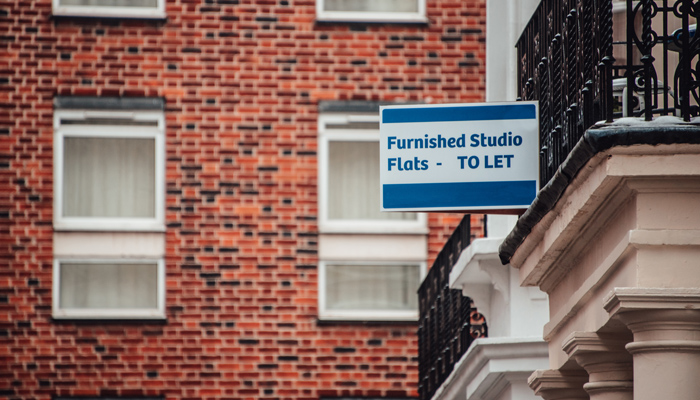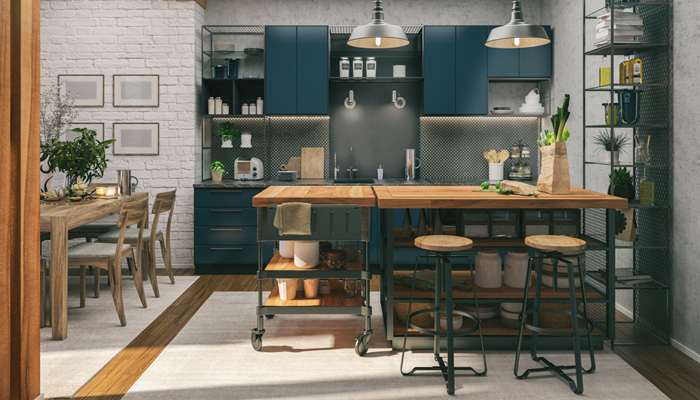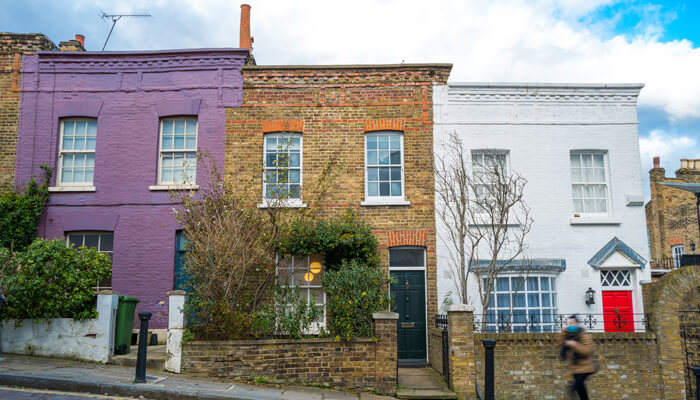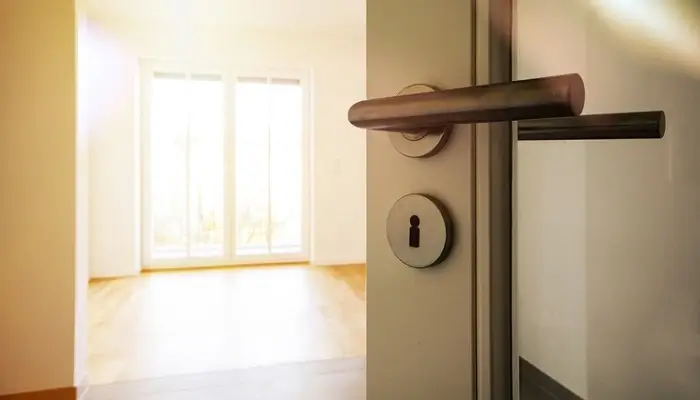What Does My Landlord Insurance Cover?
Renting out your property can feel like a juggling act, balancing the need to protect your investment while keeping everything shipshape for your tenants. Landlord insurance is the safety net that catches those concerns and can cover the structure, loss or damage to fixtures and fittings and importantly, the potential loss of rent, that could be incurred in serious situations where the property cannot be occupied pending reinstatement. It's not just about protecting your physical property - it's about peace of mind in a world of what-ifs.
With many coverage options out there, navigating what's included in a policy is just as important as having one. In this guide, we'll walk through the key aspects of landlord insurance, helping you understand how it safeguards your property from unexpected events. Let’s explore what this essential coverage includes.
Does landlord insurance cover contents?
Here, ‘contents’ means those movable items within a property that aren't fixed to the structure. We’re talking furniture, appliances and carpets. These are the pieces that make a rental property feel homely, but often the first to suffer in mishaps or accidents.
So, does landlord insurance automatically protect these items? The answer isn't always straightforward. Standard landlord insurance policies focus mainly on the building, ensuring the bricks, mortar, and permanent fixtures are covered. But when it comes to contents, coverage can vary.
Many basic landlord policies consider contents coverage an additional option. Landlords have the flexibility to add this protection based on their rental's level of furnishing and their specific needs. If your property is unfurnished, it’s not always important to prioritise insuring your contents, other than that in the communal areas But for landlords offering fully furnished spaces, it's a different story. Here, it becomes crucial to stay protected against the financial impact of damaged or lost items within the property.
While it’s not a standard inclusion in every landlord insurance policy, contents coverage is a valuable add-on that protects the belongings that make your property rentable and liveable. Checking with your insurance provider, like Towergate, can clarify what's included in your policy.
Does landlord insurance cover the building?
Yes, with a landlords or property owners policy. Building coverage is the backbone of landlord insurance, covering all the permanent structural elements that make the property what it is – walls, roofs, ceilings, windows, floors and sanitary fittings. It's your safeguard against the big stuff - fires, floods, and the unexpected that can hit your property hard.
Why is this so important? Put simply, it keeps your investment safe. Without it, you're on the hook for major repairs, which can be a real headache and dramatically impact finances. With this coverage, you can fix major issues without breaking the bank.
Does landlord insurance cover loss of rent
One question that often comes up for many landlords is whether landlord insurance will cover loss of rent. The good news is, with the right policy, it can. This coverage is especially vital when your property becomes uninhabitable due to insured damage, such as after a fire or severe flood. It means if your tenants have to move out while repairs are made, you're not left out of pocket for the rent you'd otherwise miss out on.
Loss of rent insurance is very important as after serious damage your property may take sometime to reinstate, over 12 , 18, 24 or 26 months. Assessing and adequate rebuild period is essential as there are often unforeseen delays that can occur in planning, delivery of materials or bad weather. What you think may be a one-year delay can quickly become two years. Where will the money be coming from to pay your mortgage or other continuing expenses during this period? If you tenants are paying your rent, where are they going to be housed? You need to consider protection for alternative accommodation.
However, it's important to note that this coverage doesn't apply in all situations. For example, if your tenant decides to leave early without a breach of their lease terms, loss of rent typically isn't covered. The coverage is specifically there to help when your property can't be rented out because of damage covered by your policy.
With Towergate, tailoring your landlord insurance to include loss of rent is simple. You can select the amount of rent you want to cover and the period you need it for, ensuring you’re protected against many different scenarios that could impact your rental income. This flexibility lets you build a safety net that fits the unique needs of your property and your financial planning.
Does landlord insurance cover fire?
Yes. In most cases, having landlord buildings insurance means you’re covered against fire damage, which means you can breathe a sigh of relief knowing your rental property is protected if the worst happens. Fire coverage can be a real money saver in the long run, helping with the costs to fix or rebuild your property after a fire.
But, as with all insurance-related matters, there are a number of things to keep in mind. Not everything is covered, for example if the fire was started on purpose by you, or as a result of failing to comply with fire safety regulations.
top of this, your rebuilding sum insured must be accurate to fully rebuild at current prices to cover labour and material. Underinsurance in the event of a claim can have a serious impact on the financial amount paid out. So, it’s extremely important to make sure your sums insured are high enough to cover the potential cost of rebuilding. Regularly reviewing your policy details against the rising cost of construction can help maintain the right level of coverage for your property.
Does landlord insurance cover water damage?
Water damage is a concern for any landlord. A burst pipe in the winter can cause havoc and the damage it can do isn’t to be underestimated. Your landlord insurance typically covers you when it comes to water damage, covering you for those unexpected splashes and floods.
It's important to understand what’s covered. Sudden incidents, like that burst pipe, are usually covered under standard landlord insurance policies. These are the unpredictable, out-of-the-blue events that can soak your property in minutes.
However, gradual damage is a different story. Issues that crop up over time, like a slow leak under the sink that eventually rots the floor, might not be covered. Insurance is there for the sudden and unforeseen, not for wear and tear or maintenance issues that have been neglected over time.
So, while landlord insurance offers a safety net against water damage, keeping on top of property maintenance and addressing small issues before they become big problems is equally important. And if you’re ever in doubt about what your policy covers, be sure to read your policy documents and check with your insurer.
Does landlord insurance cover tenant damage?
Sadly, dealing with tenant damage is an inevitable aspect of renting property. From accidental wine spills on the carpet to those more deliberate acts of creativity on the walls, it's all part and parcel of property leasing. So, where does landlord insurance stand on this?
A landlord insurance policy can include cover for accidental damage caused by tenants., such as water damage from overflowing bathtubs or broken windows, are typically included in your coverage. Check your policy for the precise cover that applies to you, as coverage will vary between insurers.
When we talk about intentional damage, it gets slightly trickier. Deliberate damage caused by tenants, such as punched holes in doors or graffiti art on the living room walls, isn't typically covered by standard policies. That’s because insurance is designed to protect against the unexpected, not intentional acts. A few, so keep an eye out if this is something you prioritise. However, the best way to prevent deliberate tenant damage is by maintaining an open, honest relationship.
It’s also good to be aware of your policy’s limitations and exclusions. Normal wear and tear isn’t considered insurable damage as it’s expected over time through ordinary use. High-value items might also have specific limitations, so if you're renting out a furnished property, it's worth considering additional contents insurance for those pricier pieces.
Does landlord insurance cover tenants’ contents?
When it comes to the personal belongings of tenants, there's often confusion about what's covered under landlord insurance. The simple answer is that landlord insurance doesn’t extend to cover tenants' personal belongings. This type of policy is designed to protect the landlord's property and interests, not the possessions that tenants bring into the property.
Why is this distinction important? Because it highlights the need for tenants to take out their own home or business contents insurance. Tenants' contents insurance specifically designed to cover personal items like electronics, furniture, clothing, and other belongings against theft, loss, or damage within the rental property.
Encouraging tenants to secure their own contents insurance is worthwhile for both parties. It means their possessions are protected, which can help avoid potential disputes and financial strain if their items are damaged or stolen. It also explains the responsibilities and coverage areas between landlords and tenants, making it clear that each party is responsible for their own property.
For tenants seeking peace of mind for their personal items, Towergate offers tailored tenants' contents insurance. This coverage ensures that their belongings are protected, providing them with security and comfort in their rented home.
Does landlord insurance cover tenant injury?
The thought of a tenant getting hurt on your property isn't a pleasant one. That's where the public liability bit of your landlord insurance steps in(also known as Property Owners Liability insurance). This coverage is there to handle the costs if accidents happen which is the landlord’s fault, covering everything from legal defence fees to medical bills.
It's a key piece of the landlord insurance puzzle, giving you that extra peace of mind. No need to worry about dipping into your own pocket if something happens that is your responsibility as the landlord. Be sure to give your liability coverage a once-over now and then. Checking that it still matches up with your property's needs means you're always ready, no matter what comes your way. You will normally be responsible for the first amount of any property damage claim know as an excess. Typically this will be £100 - £500 depending on the cover you have chosen.
Landlord insurance from Towergate
We provide landlord insurance for a wide range of properties and tenants including multi occupancy, students, local authority placements, unoccupied and much more. See our landlords insurance page or call 0330 828 1709 for more.
About the author
 Alison Wild BCom (Hons), FMAAT, MATT, Taxation Technician is a highly respected industry professional who has been working with and advising SMEs in areas including tax, pensions, insurance and marketing for over 25 years. She is a fellow member of the Association of Accounting Technicians (AAT) and member of Association of Tax Technicians (ATT). She also has over 25 years' experience as a residential landlord.
Alison Wild BCom (Hons), FMAAT, MATT, Taxation Technician is a highly respected industry professional who has been working with and advising SMEs in areas including tax, pensions, insurance and marketing for over 25 years. She is a fellow member of the Association of Accounting Technicians (AAT) and member of Association of Tax Technicians (ATT). She also has over 25 years' experience as a residential landlord.
This is a marketing article by Towergate Insurance. Consistent with our policy when giving comment and advice on a non-specific basis, we cannot assume legal responsibility for the accuracy of any particular statement. In the case of specific problems we recommend that professional advice be sought.
Date: October 17, 2024
Category: Landlords












